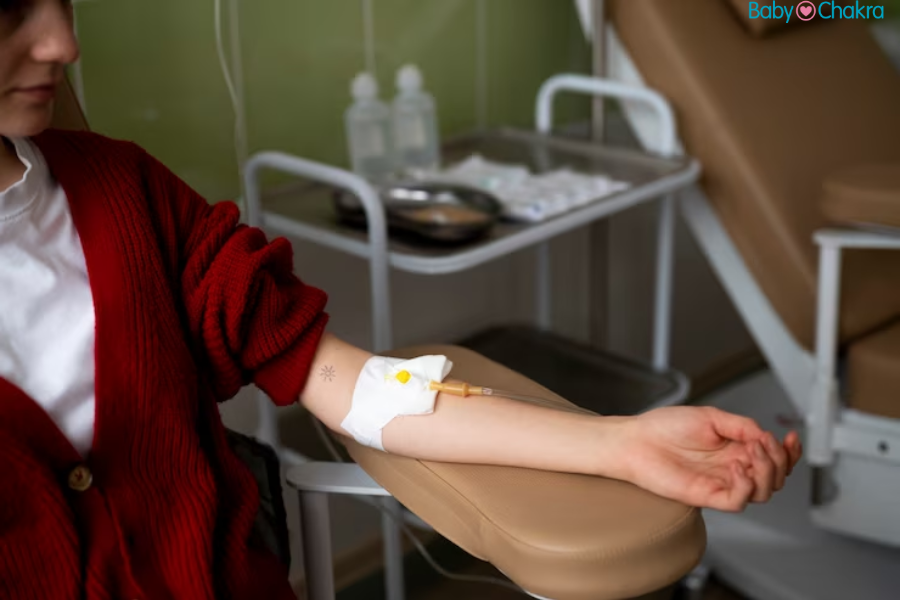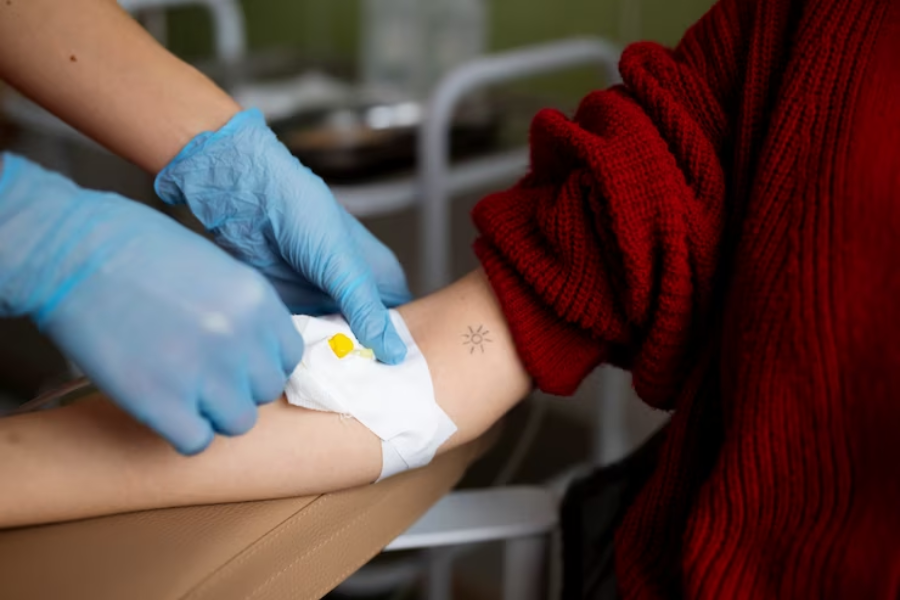
Thinking Of Donating Blood During Pregnancy? Here’s What You Need to Know
6 Jun 2023 | 3 min Read
Manisha Pradhan
Author | 1053 Articles
Blood donation is a selfless act that helps save lives by providing vital blood components to individuals in need. Donating blood typically involves the extraction of whole blood or specific blood components, such as red blood cells, platelets, or plasma, from a healthy donor. The collected blood is then carefully screened, processed, and distributed to hospitals and medical facilities for transfusion purposes.
How safe is donating blood during pregnancy? Read on to find out.
Donating Blood During Pregnancy: Is It Safe?

Donating blood typically involves the extraction of whole blood or specific blood components, such as red blood cells, platelets, or plasma, from a healthy donor. The collected blood is then carefully screened, processed, and distributed to hospitals and medical facilities for transfusion purposes.
While donating blood is generally safe and beneficial for most individuals, it is essential to prioritise the well-being of both the mother and the developing baby during pregnancy. As a result, pregnant women are advised against donating blood.
There are several reasons for this precautionary measure:
Increased Blood Volume: During pregnancy, a woman’s blood volume naturally expands to accommodate the needs of the growing fetus. Donating blood may temporarily reduce this volume, potentially causing dizziness, weakness, and other adverse effects.
Nutritional Requirements: Pregnant women require additional nutrients to support the healthy development of the baby. Donating blood may lead to a temporary depletion of essential nutrients, which could negatively impact both the mother and the baby.
Iron Deficiency Anaemia: Iron deficiency anaemia is a common concern during pregnancy, as the body requires increased iron levels to support the production of red blood cells. Iron is an essential mineral that the body uses to make haemoglobin which is responsible for carrying oxygen to all parts of the body, which helps it grow and develop. Iron is also essential for fetal development.
Low iron during pregnancy could lead to:
- Stillbirth
- Low birth weight
- Preterm birth
Blood donation can further deplete iron stores and exacerbate the risk of anaemia.
Hormonal Changes: Pregnancy involves significant hormonal fluctuations, which can affect blood clotting factors. Donating blood during this time may increase the risk of bleeding complications.
If you are considering donating blood during pregnancy, it is crucial to consult with your doctor. To determine whether blood donation is safe for you, your doctor will assess:
- Your circumstances
- Medical history
- Current health status
When Can I Resume Donating Blood If I Am Pregnant?
Around nine months post-delivery is a safe time to resume donating blood, only if you are not breastfeeding. In case you are breastfeeding your baby then it is advisable to wait three months after weaning.
While it is an admirable act that can save lives, donating blood during pregnancy is generally not advisable to the potential risks and concerns associated with the physiological changes occurring in the mother’s body. You can ask your doctor for advice on the right time to resume donating blood post-delivery.
Remember, once your pregnancy journey is complete, you can resume your blood donation efforts and continue making a positive impact in the lives of others.
Recommended skincare products for pregnancy
Also Read:
Nature And Outdoors During Pregnancy And Postpartum: What are the benefits?
Most To-Be Celebrity Parents Choose To Go On A Babymoon: What are the benefits of going on a babymoon?
Cover image source: freepik
A


Related Topics for you
Suggestions offered by doctors on BabyChakra are of advisory nature i.e., for educational and informational purposes only. Content posted on, created for, or compiled by BabyChakra is not intended or designed to replace your doctor's independent judgment about any symptom, condition, or the appropriateness or risks of a procedure or treatment for a given person.


